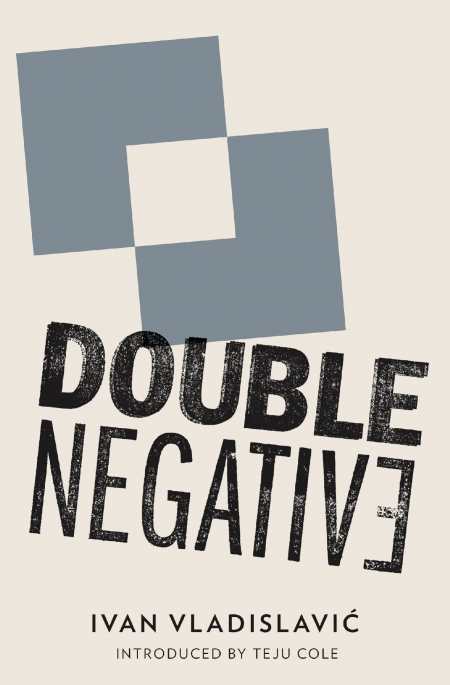Double Negative
This thought-provoking novel about race incites discussion through spirited, well-crafted dialogue.
A double negative, according to Teju Cole, the South African novelist who wrote the introduction to this engaging but at times frustrating novel, is a photograph that has been exposed twice, resulting in a clouded image. The book tells about Neville Lister’s leaving and return to Johannesburg: a double negative in its own right that hints at the unplanned circumstances of Lister’s life.
Double Negative consists of three connected novellas that follow Lister from a spoiled college dropout to a middle-aged, prominent fashion photographer. In the first chapter, Lister spends a day with David Auerbach, noted photographer, whose subjects are ordinary citizens often struggling under the yoke of apartheid. Auerbach decides that he, Lister, and journalist Gerry Brookes should visit three randomly chosen houses to photograph the inhabitants. In the book’s most compelling scene, Veronica, a black woman who, along with her husband and two children, suffers mightily from South African oppression, tells how one of her children died because medical care was denied to blacks. Although the author describes Lister as a young man with a social conscience, Brookes is the one who asks the tough questions about apartheid.
“Dead Letters” describes Lister’s move to London to avoid military service and his return to South Africa, where he visits Mrs. Pinheiro at one of the houses the three men chose but ran out of time to approach ten years earlier. The author presents a lively dialogue between Lister and Pinheiro. She relates the sad plight of Dr. Pinheiro, a respected physician in his own country who is now reduced to sorting letters in a post office because his medical credentials are not recognized. The author provides a clever but sad irony: if Pinheiro were allowed to practice medicine, perhaps he could have saved Veronica’s child. Of course, this is a long shot, but one worth pondering.
“Small Talk” includes too much ordinary chatter and lacks the spirited conversations of the previous chapters.
Vladislavić has written two previous novels, The Folly and The Restless Supermarket. Double Negative received the University of Johannesburg literary award for South African creative writing when it was first published, in 2010. The dialogue is finely honed throughout, leaving the reader to desire a bit more in the character development department. Overall, this is an attention-holding novel that deserves to be read; certainly the first two chapters will reward the reader.
Reviewed by
Karl Helicher
Disclosure: This article is not an endorsement, but a review. The publisher of this book provided free copies of the book to have their book reviewed by a professional reviewer. No fee was paid by the publisher for this review. Foreword Reviews only recommends books that we love. Foreword Magazine, Inc. is disclosing this in accordance with the Federal Trade Commission’s 16 CFR, Part 255.

